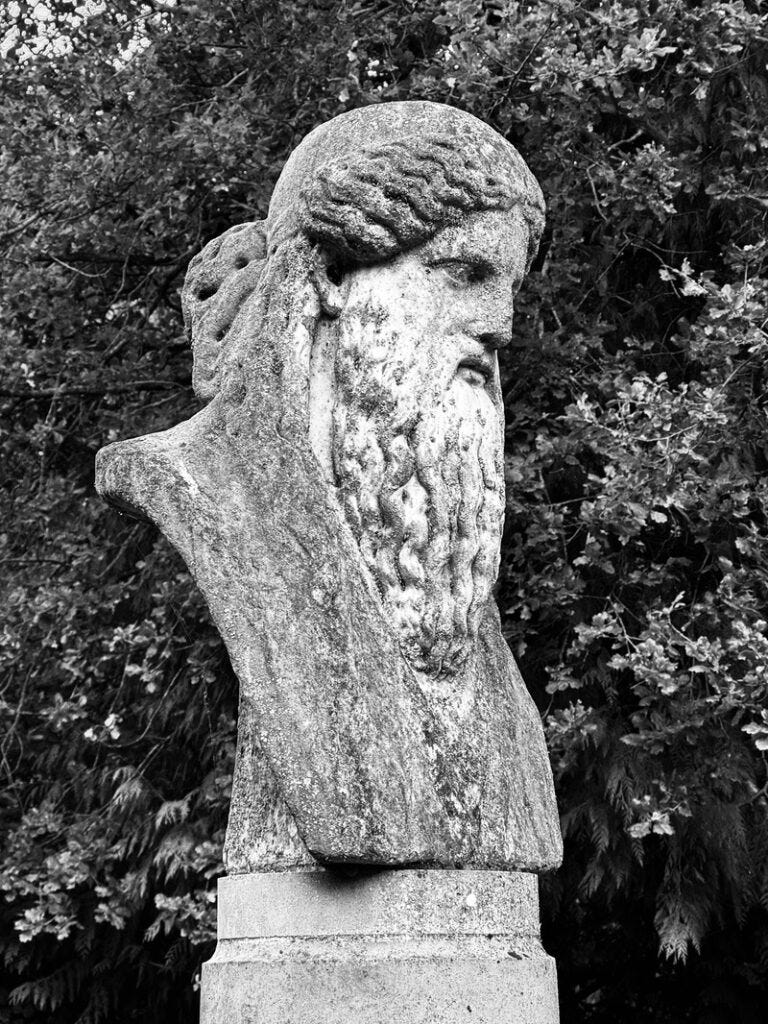Monday 21 October, 2024
What — or of what — is he thinking?
Quote of the Day
“A university is a place devoted to the problem of how to make serious use of free time.”
Agnes Callard
Musical alternative to the morning’s radio news
Alec Finn and Mary Bergin | Two jigs
Tunes are (I think) Kitty’s Rambles and Pádraig O’Keefe’s
Long Read of the Day
Lady Baker and the source of the Nile
Sarah Harkness’s Literature for the People, the story of the two Macmillan brothers who built a publishing empire (and bought Alice in Wonderland to the world), came out in May (with a paperback edition coming next March), but she is constantly digging in archives of the Victorian period and coming up with gems. This essay “Lady Baker and the source of the Nile” is the latest one.
This is how it opens…
Among the thousands and thousands of handwritten letters preserved in the British Library from the pen of the Victorian publisher Alexander Macmillan, one in particular piqued my interest: written to the heroic explorer of the sources of the Nile, Sir Samuel Baker, on 4 May 1866:
”There is a terrible defect in your summing up. You should say something about Mrs Baker. It may be as slight as you please, very little more than you most tender and delicate allusion at starting, but indeed something should be said. … It struck me as strange to a degree. Of course I understand your feeling of not wearing your heart upon your sleeve, but I do think people would wonder.”“ The book in question, still in draft at this stage, was Samuel Baker’s classic tale of adventure Albert-Nyanza: Great Basin of the Nile, a title that Alexander Macmillan had gone to great lengths, and considerable expense, to secure. The publisher was determined that nothing should be lost in the promotion of a story that was fascinating the Victorian public…
You can guess why Baker was reticent, but the explanation is fascinating.
The Internet holds up a mirror to human nature — alas.
Yesterday’s Observer column
This column comes to you as a break from listening to a riveting podcast series called ‘Kill List’. It’s about a secret website that journalist and author Carl Miller discovered on the dark web, the slimy underbelly of the internet. The site essentially runs what one might call an “assassination market” or a murder-for-hire service. Customers identify and profile someone whom they wish to have killed and pay (in bitcoin, natch) for the service they require. Hence the title of the podcast series.
The story starts in 2020 in the early days of the pandemic lockdown when a gifted IT expert and hacker, Chris Monteiro, was browsing the site and found a security vulnerability that, once exploited, gave him complete access to it. Inside, he found a “kill list”, rather like an Excel spreadsheet, of 175 people all over the world whom clients wanted murdered. For each target, there was usually lots of detailed information – address, photographs, habits, routes regularly travelled etc. It looked, I guess, superficially mundane – until you read the “instructions” attached for each one. “How much bitcoin should I pay?” “Tell me the execution time in advance – I can’t be there.” “I would just like this person to be shot and killed. Where, how and what with does not bother me at all.” You get the idea…
Books, etc.
Maria Tippett RIP
I was dismayed to learn on Thursday last that Maria Tippett had passed away in August — and even more dejected that I hadn’t known of her death. She was a great cultural critic and a formidable writer (see the list of her books on her Wikipedia page). But she was also a warm and sympathetic friend over many years. She lived for part of the year in a wonderful house on an island off Vancouver, but also regularly spent a few months every year in Cambridge (where she was a Fellow of Churchill College). She — and her husband, the historian Peter Clarke — were wonderfully supportive of me and my young children after my wife Sue died in 2002.
Maria wrote a fine biography of Yousuf Karsh, the celebrated portrait photographer.
As a photographer, I remember feeling jealous when she told me about the project. But the book of hers that I really loved was her memoir, Becoming Myself, a copy of which she gave to Sue and me in 1996.
May she rest in peace.
My commonplace booklet
In response to my complaint in Friday’s edition that “I spend too much time doing email and too little time doing the things I ought to be doing”, Joe Dunne emailed to say that he tries to follow Carl Jung’s advice: “Quietly do the next and most necessary thing.”
But…
The challenge is this: For example, if the next most important thing will take a day to complete, the 2nd most important thing an hour and the 3rd most important 5 minutes, the temptation is to work them in reverse order. There’s great satisfaction to be had by completing tasks in the most important order and this can become a habit!
I’ve come to the conclusion that the best/only source of wisdom in this ‘personal productivity’ lark is Dave Allen, whose Getting Things Done is a sacred text for some of my most productive friends. Time to re-launch Omnifocus maybe.
Errata
Apologies for the typos in Friday’s edition, the product (as usual) of rushed proofreading at the end of a busy day.






